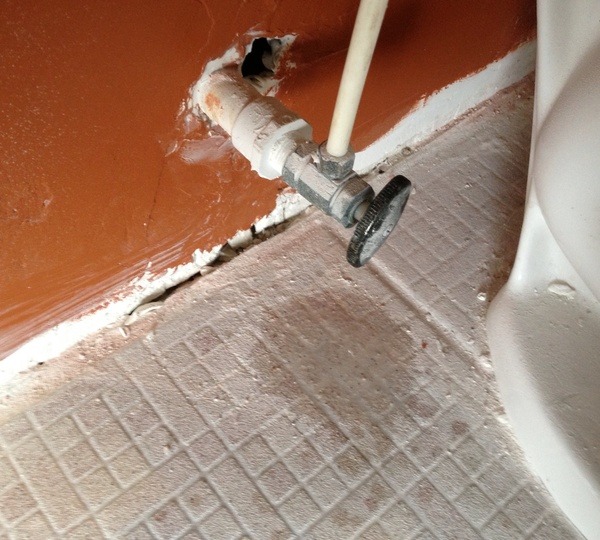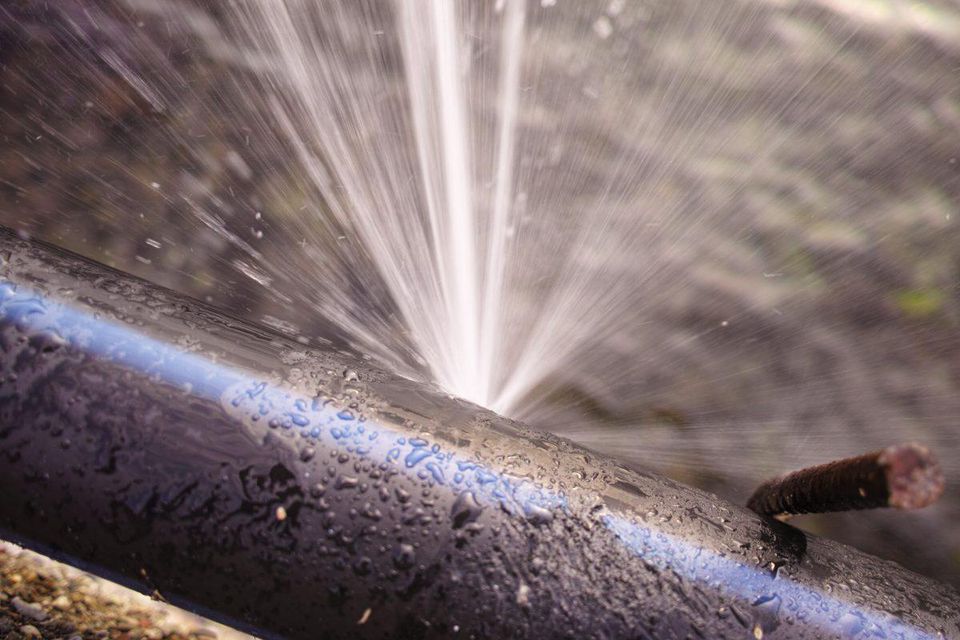The Top 5 Common Origins of Water Leaks
The Top 5 Common Origins of Water Leaks
Blog Article
Presented here below you will discover additional reliable guidance concerning Reasons for Water Heater Leaks.

"Be careful of little expenditures. A tiny leak will sink a great ship." - Benjamin Franklin.
He couldn't have been more right because water leakages in our residences result in a waste of resources, increasing our water bills. Although this increase could appear negligible at first, it can lead to significant expenses that can damage your bank. Apart from an increase in bills, water leaks additionally cause unwanted organic development, architectural damages, and also electrical dangers.
If you have a water leak isn't always very easy due to being unable to see most of the pipework in your house, figuring out. If you have had a rise in your water costs recently, saw water stains on walls and ceilings, smelt poor smell, and so on. You may wish to consider asking for plumbing solutions to get it looked into.
There are a number of sources of water leakages, and we have actually assembled the usual reasons listed below. Inspect to see if you have had related issues in your house recently.
Weakened pipeline joints
Pipeline joints are the parts of our plumbing system where the pipes connect. They are the weakest point of our plumbing system. Because of this, they are more susceptible to degeneration. It is essential to note that even though pipes are designed to withstand pressure as well as last for some time, they weren't developed to last permanently; for that reason, they would wear away in time. This damage could result in cracks in plumbing systems. A typical indication of damaged pipe joints is extreme noise from faucets.
High water pressure
You discovered your house water stress is greater than normal however after that, why should you care? It's out of your control.
It would certainly be best if you cared since your average water stress should be 60 Psi (per square inch) and although your house's plumbing system is designed to hold up against 80 Psi. An increase in water stress can place a strain on your house pipes and cause splits, or worse, burst pipes. If you ever before notice that your home water pressure is more than common, get in touch with an expert regarding controling it.
Deterioration
As your pipework grows older, it obtains weaker and also extra at risk to corrosion after the regular passage of water via them, which can gnaw at pipes and cause splits. A noticeable indication of rust in your home plumbing system is discoloration and although this could be tough to find due to most pipes hidden away. Once they are old to guarantee a sound plumbing system, we advise doing a regular check-up every few years and also transform pipelines
Blocked drains
Food particles, dirt, as well as grease can trigger clogged up drains pipes and obstruct the passage of water in and out of your sink. Raised stress within the seamless gutters can trigger an overflow and also finish up breaking or bursting pipelines if undealt with. To stay clear of clogged drains in your home, we suggest you to stay clear of putting fragments away as well as regular cleansing of sinks.
Busted seals
Another source of water leakages in residences is damaged seals of home devices that make use of water, e.g., a dishwasher. When such home appliances are set up, seals are installed around water connectors for easy flow of water via the device. Thus, a busted seal can trigger leak of water when in operation.
With little or no expertise of plumbing, recognizing your residence's plumbing system enough to deal with some of these problems (without effect) can be a headache. Connect with plumbing specialists in Pittsburgh, Divine Superintendence, Rochester, as well as environ today, and they'll make those concerns go away.
He could not have been extra ideal since water leakages in our houses result in a waste of sources, boosting our water costs. If you have had a boost in your water costs lately, noticed water spots on ceilings and also wall surfaces, scented poor smell, and so on. A rise in water pressure can place a strain on your house pipelines and also lead to cracks, or even worse, ruptured pipes. One more reason of water leaks in homes is broken seals of house devices that make use of water, e.g., a dishwasher. When such home appliances are mounted, seals are set up around water ports for very easy passage of water via the maker.
5 TIPS IN DETECTING A WATER LEAK IN YOUR HOUSE
Water leaks can be hard to find in your home, yet they can be so common. We rely on water every day in our home, which is why a leak can cause big problems. By detecting them early, you can save money and further damage, getting the problem fixed as soon as possible. Here are 5 tips to help you detect a water leak in your home, so you can contact a plumber straight away and get the issue sorted.
Check your water meter
Many people underestimate the value of the water meter in their home. It can be one of the best ways to tell if you have a leak early on, so you can get on top of it before issues start arising. Start by turning off all the water in your home: taps, washing machine, dishwasher, etc. Now take a look at the meter – if it’s still changing with everything turned off, it’s likely you have a fast-flowing leak that you need to get on top of straight away. If nothing changes, then leave your meter for an hour or two and come back to it. Did it change in this time? It’s likely you have a slower leak, which isn’t as urgent but still handy to get fixed so it doesn’t become a bigger problem.
Keep an eye on your bill
Another good way to detect a leak in your home is by keeping an eye on your water bill. It helps if you have a past bill from the same period of time. You can compare like for like and determine whether your water usage has increased significantly. If it has, there may be a leak in your system that you haven’t picked up before. A professional plumber can check through all of your pipes and determine where it is coming from.
Look for damage
If you have a leak inside your home, you will notice damage over time. Take a look at your showers and bathtubs and note whether any of the tiles surrounding the area seem to be discoloured or damaged in any way. There may be water stains, mould or peeling material that has resulted from a build up of moisture over time. Make sure you take a look under sinks at the back of cupboards that don’t get accessed regularly. This is where damage can go unnoticed and build up over periods of time.

As a passionate person who reads on Where to Find Water Leaks, I assumed sharing that piece of content was really useful. Do you know somebody who is interested by the subject? Please feel free to promote it. Thank-you for your time invested reading it.
24/7 emergency? We're here! Report this page